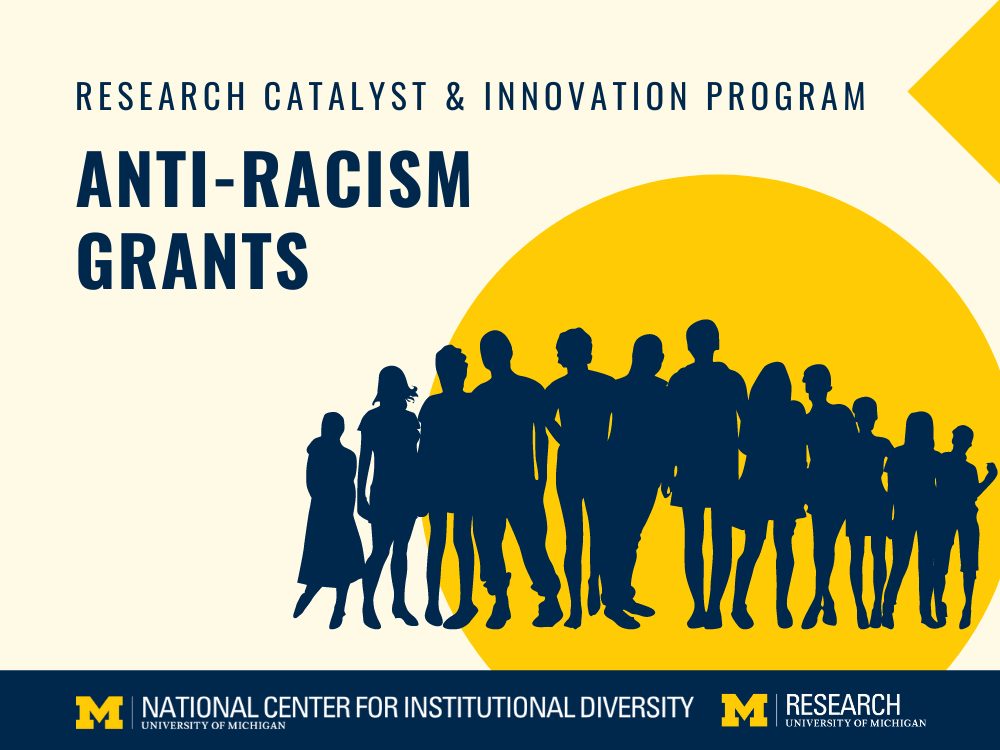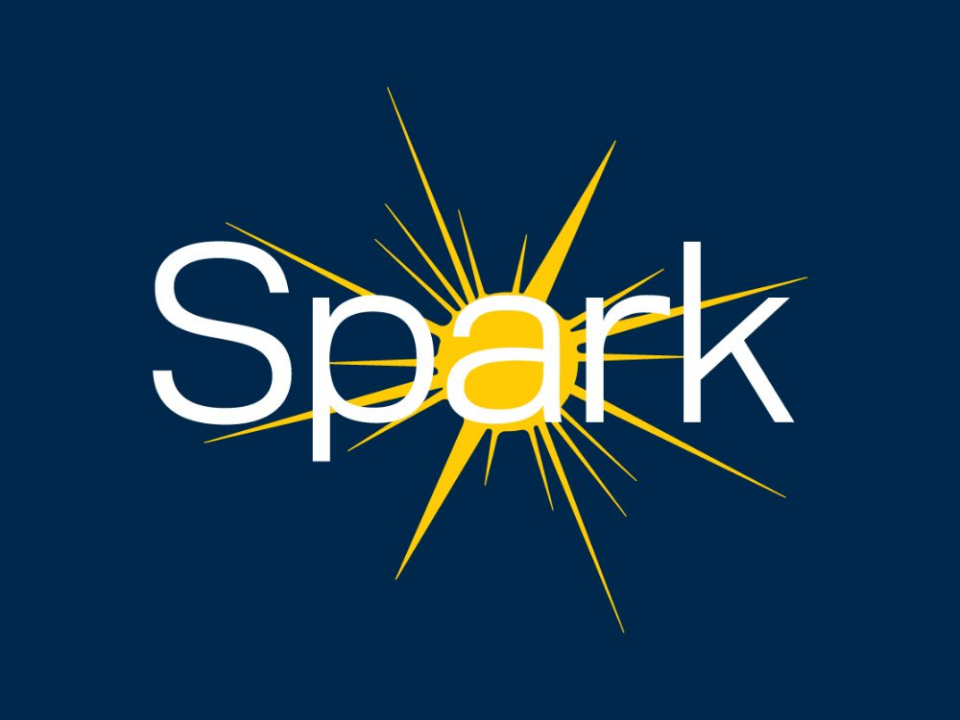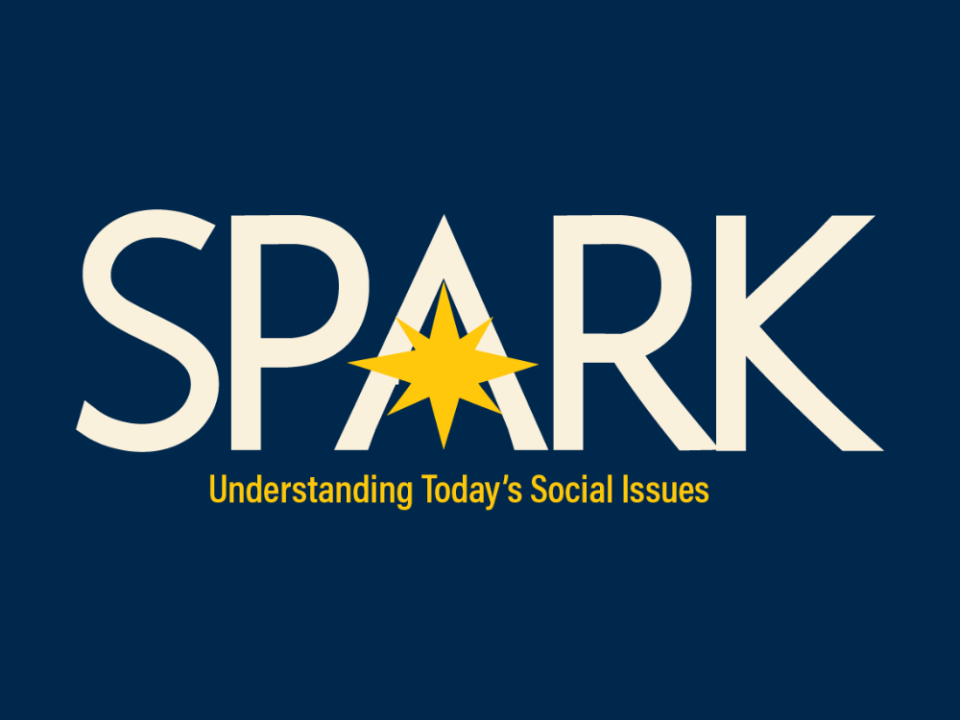- About
- News
- Events
- Initiatives
- Anti-Racism Collaborative
- Change Agents Shaping Campus Diversity and Equity (CASCaDE)
- Diversity Scholars Network
- Inclusive History Project
- James S. Jackson Distinguished Career Award for Diversity Scholarship
- LSA Collegiate Fellowship Program
- University Diversity & Social Transformation Professorship
- Publications & Resources
- About
- News
- Events
- Initiatives
- Anti-Racism Collaborative
- Change Agents Shaping Campus Diversity and Equity (CASCaDE)
- Diversity Scholars Network
- Inclusive History Project
- James S. Jackson Distinguished Career Award for Diversity Scholarship
- LSA Collegiate Fellowship Program
- University Diversity & Social Transformation Professorship
- Publications & Resources

Announcing Currents special issue: Mental Health among Marginalized Communities
March 1, 2022
Call for Applications: 2022 Anti-Racism Research Grants for Graduate Students
March 11, 2022Call for Proposals: 2022 Anti-Racism Grants for U-M Faculty
The OVPR Anti-Racism Grants aim to catalyze innovative research and scholarship efforts that will advance knowledge and understanding around complex societal racial inequalities that can inform actions to achieve equity and justice.
These faculty grants were developed in partnership with the provost’s anti-racism initiative, and are jointly administered and advanced in partnership with the National Center for Institutional Diversity’s Anti-Racism Collaborative. The OVPR Anti-Racism Grants program will run for two cycles over fiscal years 2021-22, with $900K in funds to be awarded from OVPR across the two-year period. For each program cycle, up to seven proposals will be funded – five at levels up to $50K and two at levels up to $100K.
Grants are available for PI-eligible faculty at the Ann Arbor, Dearborn, and Flint campuses.

FY22 Research Focus Area
There are persistent racial disparities within the United States and globally, embedded in systems related to health, education, income and wealth, law and criminal justice, and community development and infrastructure, among other areas. Despite evidence of deep systemic and interpersonal racism across societal spaces, the manifestations of racial inequality and the complex mechanisms through which racial inequality impacts individual, group, community, institutional, and societal level outcomes are still under examination. Further, we are in a time of increased urgency given the current intersections of the COVID-19 public health crisis, rapid shifts in educational systems, economic challenges, and growing awareness of deep historical legacies of and ongoing civil resistance to systemic racism. We believe that research can play an important role in supporting and advancing a society that is humane, equitable, and just.
As such, a key goal for the OVPR Anti-Racism Grants program is to support rigorous, innovative, and technically sound research that is relevant to the most pressing questions and compelling opportunities in relation to racial equity and justice in society. Another goal is to provide funding and research development support to PI teams with projects that would position the PIs/teams to be competitive for future external funding to expand and grow their efforts and impact.
PROJECTS SHOULD FOCUS ON TOPICS AND PROCESSES RELATED TO RACISM AT STRUCTURAL, SYSTEMIC, INSTITUTIONAL, INTERPERSONAL AND/OR INTRAPERSONAL LEVELS, WHICH COULD COVER A VARIETY OF DOMAINS, INCLUDING, BUT NOT LIMITED TO:
- Historical injustice and reparations
- Health and wellbeing
- Education in formal and/or informal settings
- Socioeconomic and occupational stratification and mobility
- Environmental racism and social justice
- Community development and infrastructure
- Social movements and activism
- Immigration experiences and policy
- Social attitudes and responses to diversity
- Criminal justice, policing, and the legal system
- Race and intersection with emerging technologies
Two grant types will be funded:
- Level 1 Grant Awards
- 5 grants (expected range $25K-$50K) for a one-year period of duration. Eligible proposals are not limited to, but could include:
- Seed grant projects for multidisciplinary groups; these could be initial collaboration projects with high synergistic value/promise
- New additions to existing projects that allow for enhanced methodological rigor, precision and/or nuance; could also include novel uses of existing data or multiple datasets
- 5 grants (expected range $25K-$50K) for a one-year period of duration. Eligible proposals are not limited to, but could include:
- Level 2 Grant Awards
- 2 grants (up to $100K) for up to 18-month duration. Eligible proposals are not limited to, but could include:
- Projects by already established collaborative teams for “next level” research/scholarly projects of high innovation and synergistic value that would significantly advance thinking and study in their topic area
- Larger scale research projects using multiple methods or mixed methods approaches
- A combination of novel research/scholarship and translation/engagement efforts
- 2 grants (up to $100K) for up to 18-month duration. Eligible proposals are not limited to, but could include:
We invite proposals that aim to grow the current scope of research on racial inequality and anti-racism, develop new knowledge through interdisciplinary scholarly engagement, and include collaboration in the service of increasing the impact of the research. We also encourage proposals that explore and address interconnections of racial inequality with inequalities of gender and gender identity, sexual orientation, or disability status, among other identity and status areas.
We expect and welcome methodological diversity in addressing pressing questions. Thus, we are open to projects that utilize a wide array of research methods, including quantitative, qualitative, mixed-methods, ethnographies, design-based research, community participatory methods and historical research, to name a few. We also welcome methodological research that can enable and support research on and with racialized communities that build capacity for equitable societal systems.
For both grant levels, prioritized projects will include scholars from multiple disciplines and academic department/unit backgrounds, as well as projects that substantively include junior faculty on the PI leadership team. We strive to support a diverse group of researchers in terms of race, ethnicity, gender and seniority.
Along with grant funding, awardees will be provided additional support through the OVPR Research Development team and will be connected to a variety of other opportunities (e.g., research development, student funding, public engagement and dissemination/translation, networking) through NCID’s Anti-Racism Collaborative.
Questions?
If you have any further questions, please contact [email protected].




